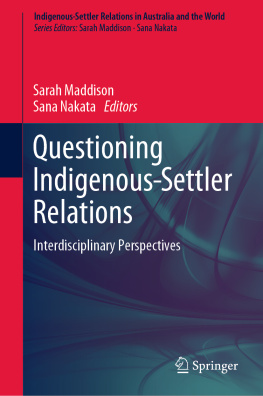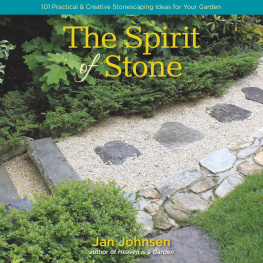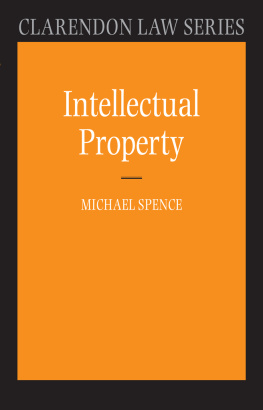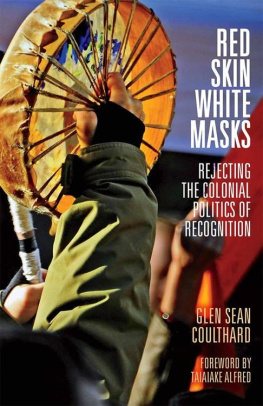To the memory of Roger Williams, an individual who championed freedom of thought, created a haven for political and religious dissidents, was part of a movement that succeeded in briefly outlawing slavery, spoke out to defend indigenous land rights, and published a compassionate portrait of Narragansett Indian language and culture that remains nothing less than a national treasure. And he pursued these projects with little regard for his own safety, holding a critical mirror to the prevailing prejudices of his day.
AUTHORS NOTE
T his book did not find its way into your hands easily. It was originally accepted for publication in the controversial Problems of Anti-Colonialism book series, which aimed to critically examine anti-colonial history, scholarship, and politics under the assumption that appraising their benefits and costs to humanity at large makes sense. Rowman & Littlefield, who originally committed to publishing this series, dropped it in October of 2020 after receiving a Change.org petition signed by leftist academics accusing the series of being a white nationalist project. The fact that one of the two co-editors, Dr. Eric Louw, is a former United Democratic Front activist who put his very life on the line pursuing the defeat of South Africas apartheid regime was, apparently, irrelevant. The series was subsequently taken on by Anthem Press, who dropped it in March of 2021 after a leftist academic Twitter mob made similar objections without acknowledging that the series growing international editorial board had been joined by Drs. Fouad Mami and Wanjiru Njoya. With the series frozen in leftist carbonite, publishing this book independently with a smaller and braver outfit presented the next logical option. Rebecca Bynum, editor of New English Review Press, agreed to take on this manuscript and see it through publication. Of course, I surveyed this publishers diverse catalog of book titles and descriptions before signing the contract. Some looked amusing, others thought-provoking, and yet others alarming. The scene reminded me of large family gatherings during the holidays, where heated arguments concerning politics, religion, and culture constantly erupt over appetizers and dinner but have never prevented any of us from meeting again at the same time next year, always with new ideas and viewpoints to share. I am grateful to have been welcomed to the table of New English Review Press.
Note that I have not written this book in my capacity as Rhode Islands state archaeologist. This has not been authorized, endorsed, or even so much as previewed by my employer, the Rhode Island Historical Preservation and Heritage Commission, so it should not be presumed to represent the views or opinions of that agency. Nonetheless, my workplace experiences have proven so integral to my understanding of the topic of ceremonial stone landscapes that any attempt to filter them out of this book would significantly diminish the breadth and efficacy of its analysis. Accordingly, I afford the lessons of personal memoir equal standing to those of archaeology, history, journalism, and social criticism, combining them in a literary excavation broad enough to expose its object from many angles.
Essentially, this book combines a series of journal articles that I have published concerning historical stone heaping practices and the Ceremonial Stone Landscape Movement with some additional context and commentary. Scattered throughout Part 1 are passages from my 2015 article in the Bulletin of the Archaeological Society of Connecticut titled Romance, Redemption, and Ceremonial Stone Landscapes. Most of Chapter 13 consists of sections from my 2013 article in Northeast Anthropology titled Remembering Stone Piles in New England, while Chapter 14 is largely a reproduction of my forthcoming article in Northeast Historical Archaeology titled Historical Accounts of Forgotten Stone Heaping Practices on Nineteenth Century Hill Farms. Portions of Chapter 15 were adapted from my 2014 article in Archaeology of Eastern North America titled Cairnfields in New Englands Forgotten Pastures, while numerous passages from my 2018 article in Northeast Anthropology titled The Hunt for Redneck Archaeology appear in Part 3. These materials are all used with permission.
I commend the politically neutral reporting of Massachusetts-based journalist Mary Serreze, who has allowed me to reproduce photographs she took when covering the ceremonial stone landscape preservation campaign discussed in Chapter 24. Otherwise, know that I have written this book in virtual solitude, disregarding any possibility of assistance from friends or colleagues to insulate them from any associated controversy. And I would never have written this book without the interest and encouragement of perhaps the least insulated scholar of our time, Dr. Bruce Gilley.
You may be struck by the total absence of doe-eyed idealism in my writing, which reflects a major shift in perspective that I experienced in recent years that has left me, in some ways, almost unrecognizable to my former self. And that former self was quite the doe-eyed idealist. I could never forget how excited I felt, as a student of archaeology in the early 1990s, to be entering a field that promised to mitigate racism in America. I fantasized about working alongside Indians to pursue deeper understandings of our colonial-era pasts as we gleefully dismantled whatever ideological machinery prevented us from truly seeing one another in the present. It was a noble and poetic vision which carried a generic promise of making a difference in the world. What I failed to foresee was that ideological machinery being ironically maintained by a morally elite stratum of antiquarians, archaeologists, and Indians in the twenty-first century. But this century is young, and I would like to believe that if we can harness enough courage and humility to allow our visions to pass into, rather than replace, history, social progress may become free to resume.
Lastly, I wish to address those readers who count themselves among New Englands Indians. Over much of my adulthood, I have had the great privilege of learning from many of you. And one thing I have begun to understand is the depth of adversity that many of your ancestors negotiated for centuries under the cruel and shifting pressures of colonialism. I have heard family stories of racism and abuse so extreme that they have made me feel sick in body and spirit. And I have become convinced that on the stage of world history, the survival of your people through such conditions demonstrates the resilience, pragmatism, and strength of the human spirit on the highest order imaginable. Arguably, one of colonial societys greatest offenses was its radical break from reality, denying many of your ancestors their full humanity and even inventing histories to erase their very identities. Fortunately, that house of cards has finally collapsed. Unfortunately, the collapse itself has stirred up such a cloud of shame and racial anxiety that it has become difficult for anyone to see clearly, or to move on.







